When I sat down recently with eight study abroad students, part of me expected them to come to the conversation heralding epic tales of travel, strange encounters and ambitious adventure. While that is partly true, most of our conversations revealed a different, more realistic story.
These students were undergoing a deep process of readjustment. Chicago offered a stark contrast to the living situations they had all grown to feel accustomed to. Coming back to their former home meant contending with the discomfort of change, reverse culture shock and feelings of alienation.
“We are definitely creatures of comfort,” psychologist Elizabeth Kirsch said when discussing the adjustments to studying abroad. “When change happens, there’s an unknown component that kind of disrupts our feelings of safety and can cause us stress, but it can also cause us to have a need to adapt and grow at the same time.”
Kirsch works as a general psychologist with a primary focus in psychological testing. Working with such a wide variety of patients has given her a slew of adjustment cases that deal with the common anxiety, dissociation and discomfort of a big change. She explained that fluctuations in mood, behavior or stress levels are typical ways the brain can cope with handling differences. Sharing these experiences with a relatable group can help ease the abnormality of the situation.
“A lot of the stress that we have comes from the stories we tell ourselves about our situation,” Kirsch said. “The more we talk about things we are going through, the less power they hold over us.”
And so, we talked about it for nearly three hours straight. We covered the change of it all: environment, lifestyle, money, friends and mindset. From their words came lessons and realizations that might not have been so understood without the power to verbalize them. Here is what they had to say:
The Chicago Lifestyle
Coming back to the city can be quite a bit of a shock to anyone. It doesn’t matter if you were in the suburbs for the weekend or halfway across the world for months — Chicago offers a unique blend of opportunity, competition and urban culture that sets it apart from most other locations. When these students returned at the beginning of the year, the city’s chaotic characteristics were as bold as ever … for better or for worse.
- Photos courtesy of Isa Halsband
When Isa Halsband was getting settled again, she found herself swept up in the fast pacing of everything. Before that, she had resided in the quieter, cobblestoned city of Cork, Ireland— which she described as having the “comfort of a small town.” When describing Chicago, her words were nowhere near similar.
“You’re in such a large place with so many people, so many opportunities and so many things to do,” she said. “You’re always moving around constantly and you’re just trying to get from point A to point B.”
Luckily, the chaos of the city worked best for Halsband, who felt less pressure to perform well when everyone was doing their own thing.
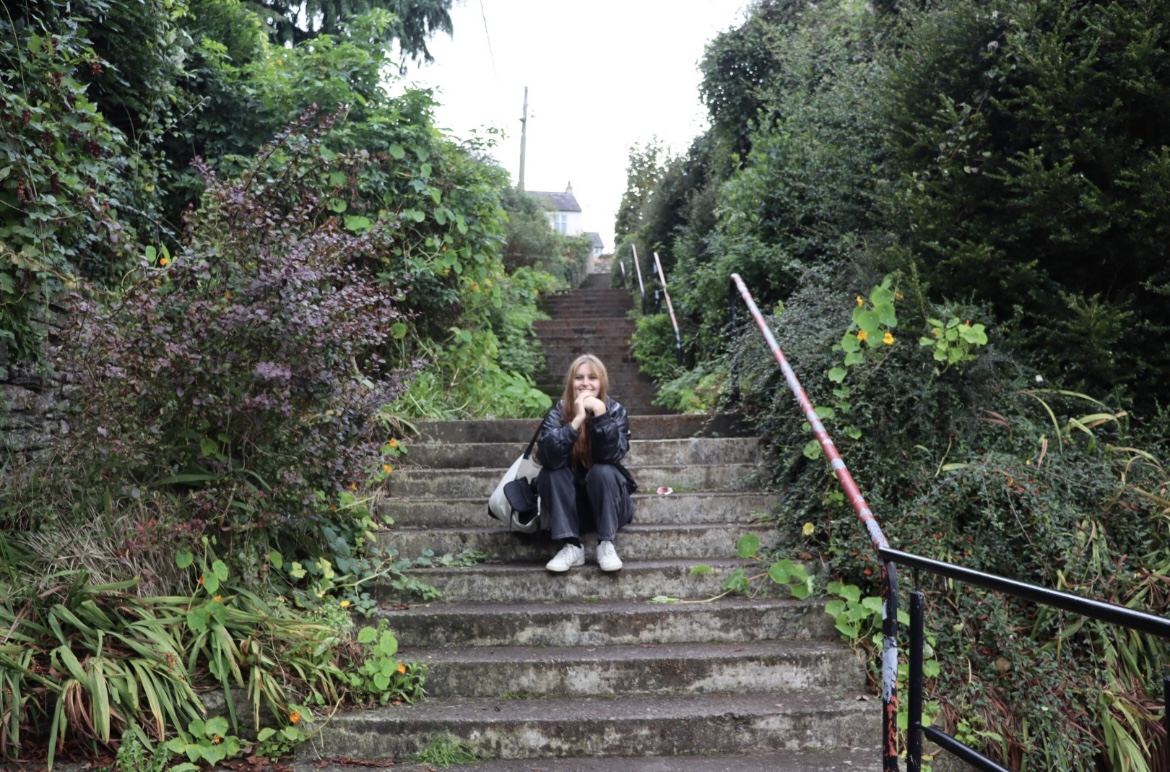
Photo courtesy of Isa Halsband
“I’m a lot smaller here. In Cork, things can be more vulnerable when more people know about it or everyone’s sharing all the time,” she said. “It’s almost easier here in the sense that less people have eyes on you.”
For Suhani Patel, Chicago’s speedy nature is indicative of a greater issue residents may have with their time. After studying in Melbourne, Australia, for five months, she said things felt generally relaxed and patient. Patel felt like rarely anyone in Chicago took the time to slow down.
- Photos courtesy of Suhani Patel
“They appreciate life there a lot more than here. I feel like we’re always in a rush here and I’m concerned,” Patel said. “It took me some time to find the patience to take a breather and be like, ‘You’ve got time.’”
Studying in Budapest, Hungary, gave Tricia Murphy the same idea about slowing down, but the intensity of the city’s atmosphere made it more difficult to decelerate.

Photo courtesy of Tricia Murphy
“I feel like I don’t live in the moment. I feel like I’m just really caught up in checking off the boxes and I’m trying to be really good about that here, about being intentional with my time, but you get swept up in it all,” Murphy said. “It’s hard.”
Feelings of Falling Behind
For other students, the issue wasn’t necessarily about the lack of time in the city, it was more about the time they missed out on while they were gone. Coming home to something familiar and comfortable was appealing after months of constant unfamiliarity. But in their absence, everything at home had changed, too, leaving the students with yet another difference to adapt to.
“When I got back here, I think what made it even stranger was that I kind of just compartmentalized everything,” Halsband said. “So, the people I love and cherish back home were on a totally different planet than I was.”
Halsband had struggled with the idea of maintaining friendships at home while also making new ones abroad. As a result, she put a lot of things in Chicago on hold while she was gone, which she admits made the transition even harder.
“When I got back, I realized I was like, ‘Wow, I missed you guys so much. So much has happened.’”
For Olivia Shay, that kind of separation from her family and friends felt wrong. She felt she should have been a participant in the things that happened while she was away.
“[It] felt a little weird, because my sisters have been doing all these sports and academic stuff and applying to colleges and I was just in Italy, like, enjoying my life,” she said. “It almost felt a little bit selfish.”
Murphy expressed similar feelings, saying she felt as if the responsibilities and tasks from her normal life were dissolved by her time overseas. Taking so much time away from her typical duties made things feel heavier upon her return.
“I feel old. I do not feel like my little freshman self anymore,” she said. “I think it’s because DePaul is starting to be more unfamiliar to me. It’s like a lot of recognizing people and realizing that the school is changing and was changing while I wasn’t here.”
Like a splash of cold water to the face, the reality of almost everything had intensified after months away from the city. For Jaryeong Kim, the intensity of it all came immediately and with force.
- Photos courtesy of Jaryeong Kim
“That quick adjustment is absolutely crazy,” she said. “When I was in Italy, time felt like it stopped, like it wasn’t moving at all. But people here were moving, people here were getting jobs. I fell behind, and now I feel the pressure that I have to catch up. The minute I came back I applied to over, like, 60 jobs.”
Kim felt the turnaround was a little too much to handle; she said she wasn’t adjusting well. The volume of responsibility she picked back up in the city felt suffocating.
“I’ve been trying to find any kind of work,” she said. “It’s mainly just money because you need to have money to live and to survive here.”
The Money Problem
Of course, money plays a critical role in the readjustment process. Time abroad packs quite the punch on anyone’s wallet. I had a conversation about this with both Kim and Patel, who live together as roommates after being in separate countries all autumn. Both girls explained that their programs had been funded by money that they saved for summers beforehand. Coming home meant hard work. Everything they saved and spent needed to be built back up.
“I think the minute that I got back from Australia, I was like ‘Okay, it’s game time,’” Patel said.
Both students knew they would have to work hard once coming home from abroad. The real issue was how money is viewed in the United States compared to the countries they visited. While under so much pressure to get back on their feet financially, they felt that America’s persistent, obsessive attitude about money only made things worse.
“Living in America, you have to work your butt off. You have to constantly be doing something. And if you’re not doing anything with your life, you just feel guilty,” Kim said.
Spending time in Italy and Australia provided them with a different way of looking at work and money. Kim and Patel felt more of a balance between work, play and peace during their time abroad. In Patel’s observation, Melbourne’s priorities were placed on people over anything else.
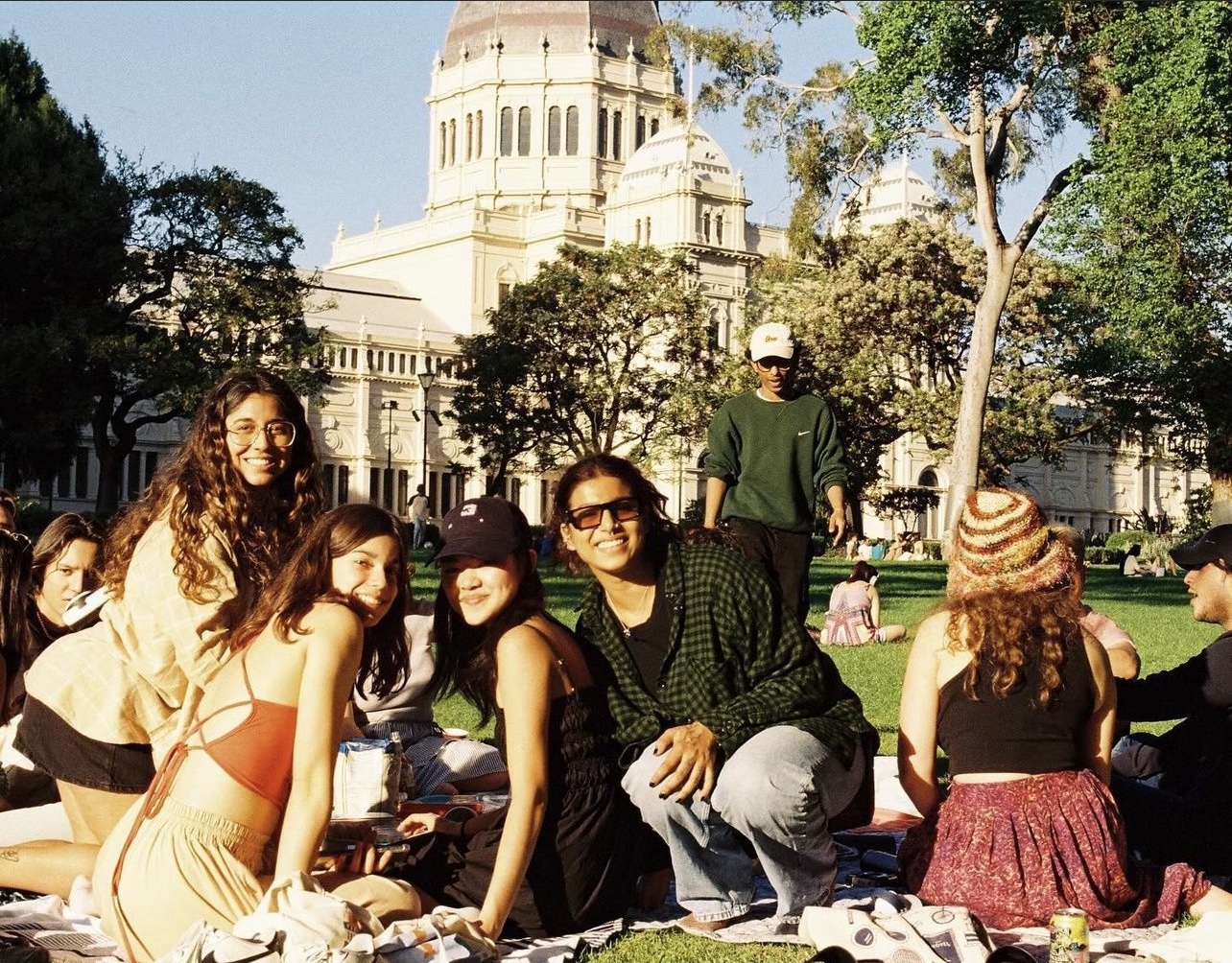
Photo courtesy of Suhani Patel
“It’s amazing, the government really does care about the people,” she said. “Coming back here, realizing that all people care about is work and money, was a really hard thing for me to understand again, even though it’s been my whole life. I think just being away for five months was enough for me to not want to ever have those values.”
Patel praised the amount of importance Australians place on happiness; she even changed her major because of it. Patel had previously studied criminology and political science.
“It was the safest way to go,” she said. “But in reality, I was miserable. I did not want to do that.”
Persuasive ideas of financial stability and structure kept her from pursuing a creative path in design.
“Australia made me realize that because of how focused they are on attaining happiness in life, it’s like, if they can do it, I can do it.”
Senior Dziugas Dirzys experienced similar realizations about the United States’ behavior around money while on his study abroad program in Italy.
“I think it’s very commercialized here compared to back in Italy,” he said. “Honestly, I feel like they did not care about money, and they cared more about experiences and time.”
The Social Factor
- Photos courtesy of Dziugas Dirzys
For Dirzys, the Italians prioritized human connection and conversation over anything else. Everywhere he went, he felt comfort in an interactive and open community. When he came back to the US, things felt cold and distant to him.
“I think the social barriers are a lot higher here,” Dirzys said. “On the train, it’s like, ‘Don’t say a word, look at your phone or just look out the window. Don’t talk to me. I’m in my little world.’ It’s very weird to adjust back to this because we’ve experienced a whole different culture.”
After returning home, Dirzys even added that he has felt a gap between himself and his best friends. In his first month back, he was excited to share everything about his experience with the people he knew best. He quickly realized how herculean a task that would be. How does one succinctly sum up so much lived experience? So much emotion? So much memory?
“They just weren’t able to connect or resonate as much and so I felt very distant, even from my best friends,” he said. “I felt kind of selfish. It feels like if you’re friends, obviously you want to share everything you can, but I just become too self-conscious, like, maybe I’ll hold back.”
Inevitably, another challenge of readjustment is the gap that must be bridged with loved ones after all the time apart. Jake Chen explained that six people in his closest friend group had gone abroad in the fall, which made the transition home especially unique.
“Coming back as a group and seeing that dynamic again is interesting,” he said. “We used to be more cohesive as one big group, but now – we’re not not friends—we just see each other less, especially because work and things make it harder.”
As Halsband reconnected with people in the city again, she found it more difficult to hold onto the friends she had just made overseas, that she was no longer seeing all the time. To handle the readjustment, she explained that she compartmentalized her two “lives” based on the location she was in.
“It was very difficult for me to conceptualize life outside of the one I was in,” she said. “I only had the perimeters of where I was and everything within there.”
As a result, going from one home to the next—Cork, Ireland to Chicago, Illinois—had turned into quite a bizarre situation for Halsband. She equated the transition to a fevered dream, in which she had constructed an entirely different version of herself in four months, just for it to be discarded again.
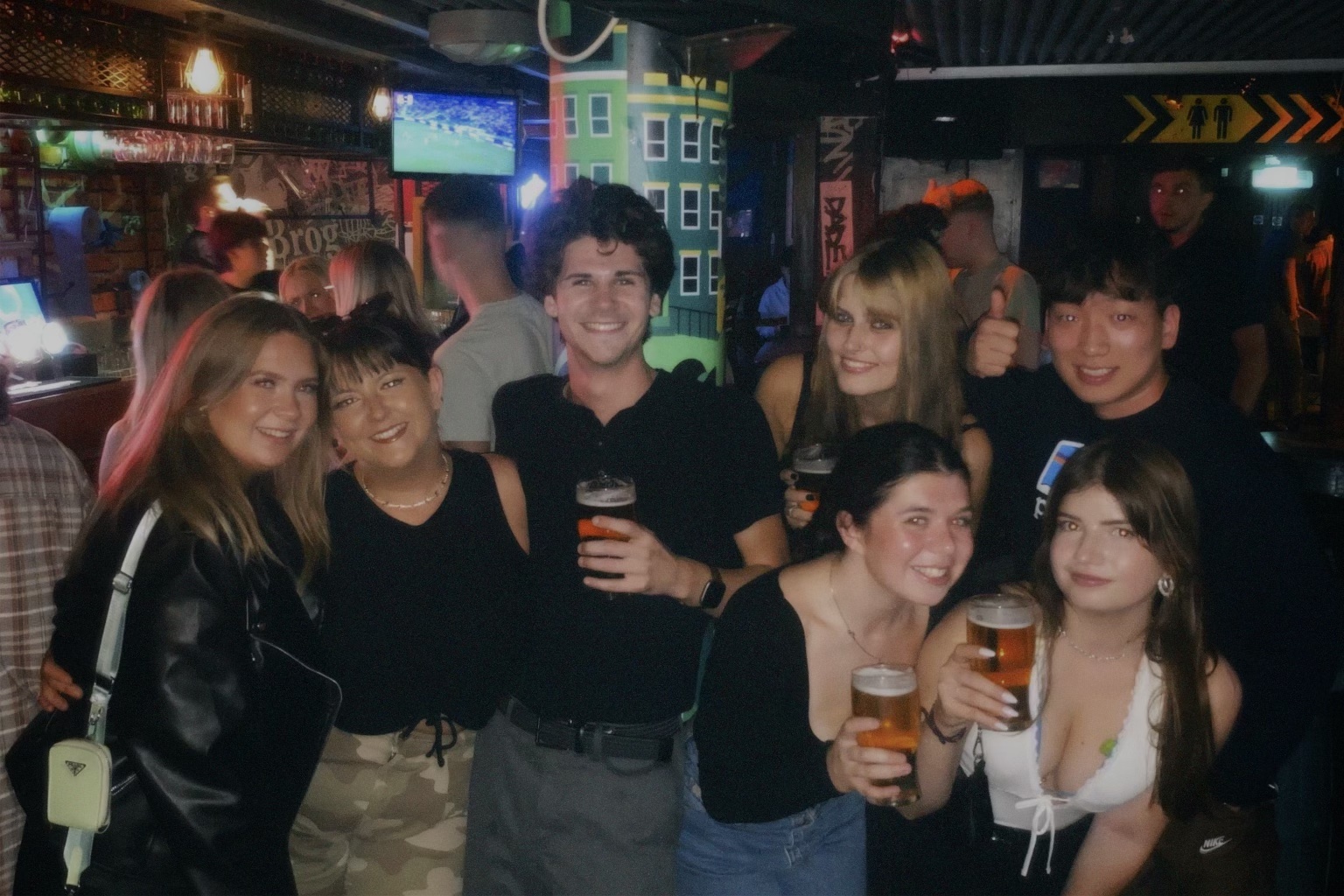
Photo courtesy of Isa Halsband
“I met all of these people that I shared really special bonds with and now they’re scattered around the entire world, living completely different lives, which just blows my mind.”
A New Person, a New Perspective
Whether it seems scary or not, Halsband raised a crucial point about readjustment and the astonishment of change. In a way, she was right: It can feel like a completely new version of yourself exists in different pockets and periods of your life. And because the typical study abroad period is only so long, it can also feel like that new person hasn’t had enough time or space to finish developing. Instead, a student is home before they know it—attempting to combine the new characteristics they’ve acquired with a version of their past. Though jarring, it is true. Are we not ever so molded and influenced by the environments in which we find ourselves?
“I’m trying not to slide down the slope of forgetting everything I learned abroad,” Murphy said. “I really don’t want to lose that, but I get nervous that I will.”
The Chicago environment has a strong persuasion of its own, though, and students felt themselves resorting to the routines and lifestyles they had before.
- Photos courtesy of Jake Chen
“It’s kind of interesting because now that I came back, I can feel myself lowkey slipping into old habits. I got here and it’s winter and it’s cold and that really diminishes my energy to go out,” Chen said. “I’m trying to be good about it, but it’s weird how quickly an old habit can set in when you get home.”
That doesn’t mean that everything is the same, though. In fact, coming back to the city after a hiatus has opened students’ eyes in a new way, introducing a sense of novelty within Chicago once more. Perhaps absence truly does make the heart grow fonder, or students have just gained a new perspective. Either way, the lessons learned abroad have laced a silver lining through the adjustment process. With the opportunity to reconstruct their judgments of the city, the students have found new appreciation and beauty that they hadn’t necessarily felt before.
For Olivia Shay, Chicago is now a place to explore constantly. During her time in Italy, Shay claimed to have ignited her sense of wanderlust, traveling every weekend and constantly exposing herself to new places. She now tries to maintain that restless spirit by carrying the same curiosity with her to Chicago.
“I learned the importance of friends and connections and also just exploring your own city, like we explored Florence so much,” she said. “And I mean, I didn’t grow up in Chicago, I didn’t grow up in the Midwest. So, coming back here, I was like, I never really got to explore Chicago. I now have the mindset of, like, this is a new city for me.”
The city has been made new for Dirzys, too, who has garnered a mindset about making the most of his days in a place he’s been in for most of his life. When he was in Italy, the opportunity to travel and explore forced him to have a plan and a goal for each day. In Chicago, he doesn’t see why it shouldn’t be the same way.
- Photos courtesy of Dziugas Dirzys
“When I come home, I want to be able to be happy that I did something that day because I’m only here for a certain amount of time,” he said. “When I wake up, I say, ‘Today, I want to get this list done and I’ll try my best to do so.’ And it basically allows me to be more driven to complete things that I honestly wouldn’t have done before.”
Lessons for the Future: an Important Note on Change
Towards the end of the conversation, we talked about the next decade of our lives. The 20s are undeniably a dynamic, formative and unpredictable portion of the human timeline. The years ahead are inevitably filled with change: different homes, friends, jobs and paths. Because of this, our readjustment and metamorphosis will be frequent factors throughout it all.
For the study abroad students, their experiences of moving and readjusting equipped them with crucial tools to help manage change moving forward. Listening to their newly developed attitudes and mindsets was informative and helpful in handling future uncertainty myself.
“If I’m moving to another city, although the readjustment can be scary, it’s another opportunity to live a different life… and that is so special to me,” Kim said.
“The future is a lot easier because of a lot of the experiences that I had in Italy. I’ll do it. I’ll explore it. I’ll see if I like it or not,” Dirzys said. “But in the moment, I’ll enjoy it for what I have right now … whatever’s thrown at you, just take it in stride.”
The process may have been difficult at times, but the result was one of beauty, strength and new perspective. Our conversation was only a reminder that some of the best things don’t come easy. Where there is a difference, there is the chance to learn.
“Don’t let fear or discomfort hold you back from trying new things and committing to a change,” Halsband said. “How you grow the most is by exposing yourself to things that make you uncomfortable. I mean, my life would be completely different if I hadn’t done that.”
Although the transitions were unfamiliar and challenging at times, that was the one emerging factor from all the students’ experiences: growth. Throughout the conversations, expressions of anxiety and isolation began to melt into shared feelings of revelation and triumph. The study abroad program had bred the students into newer, ever-evolving versions of themselves.
Header by Sofi Martinez


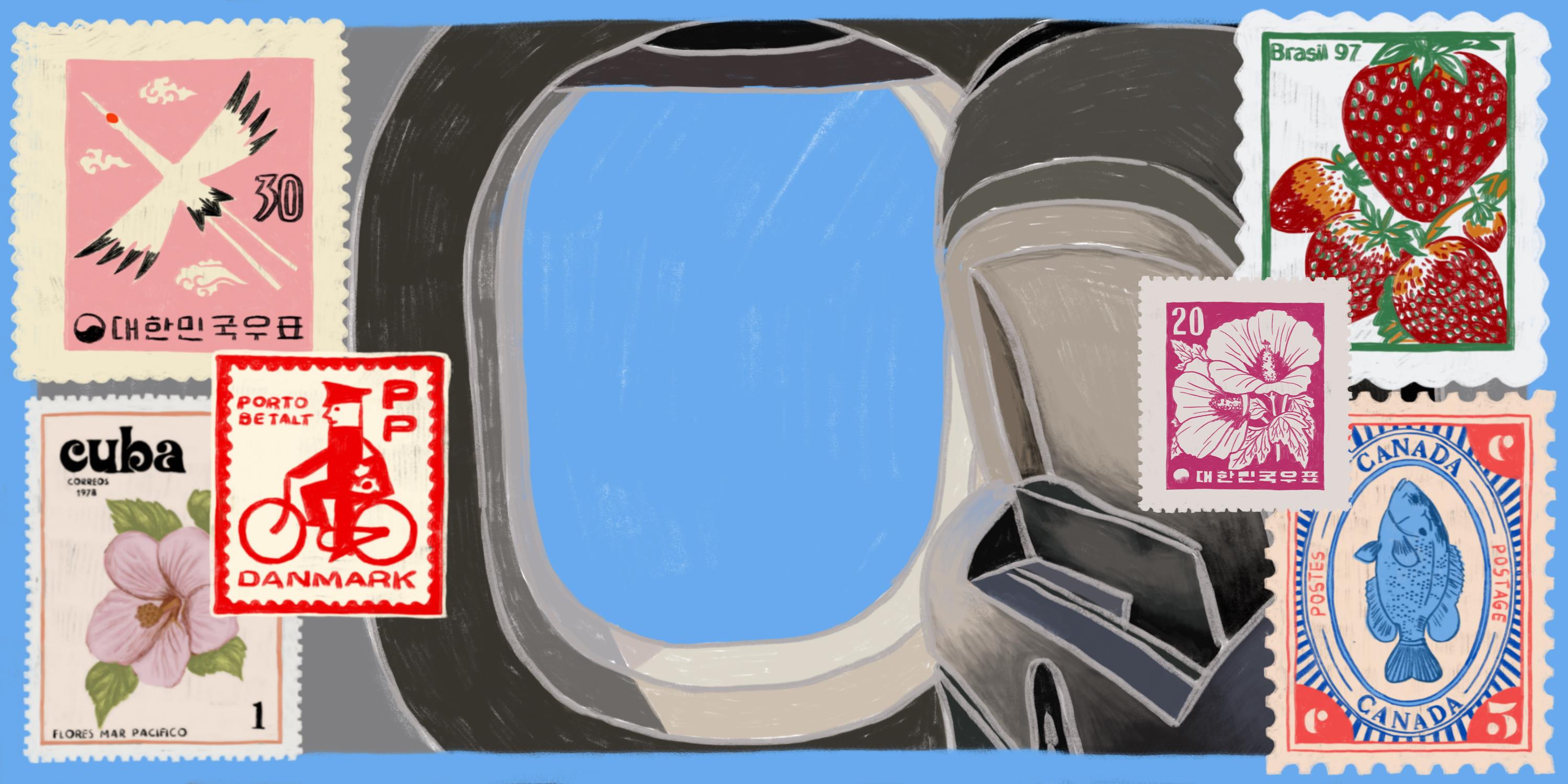


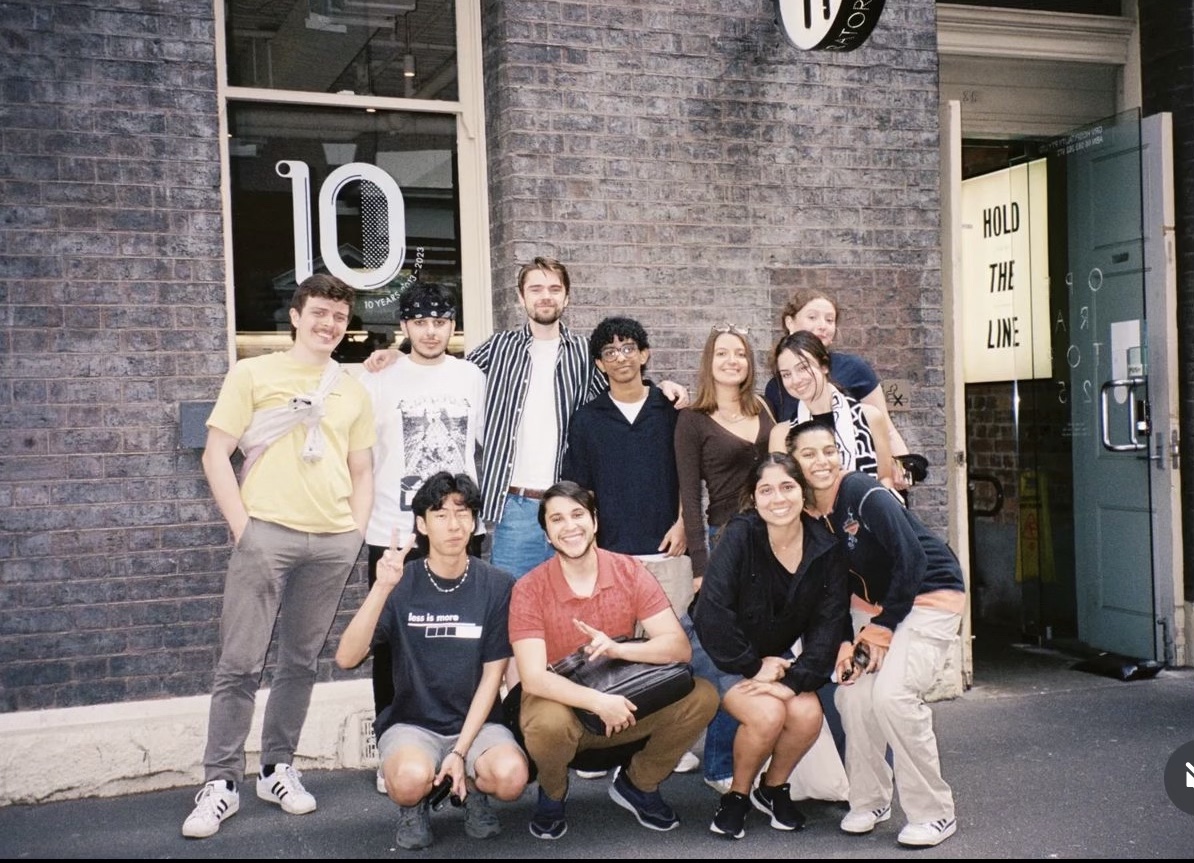
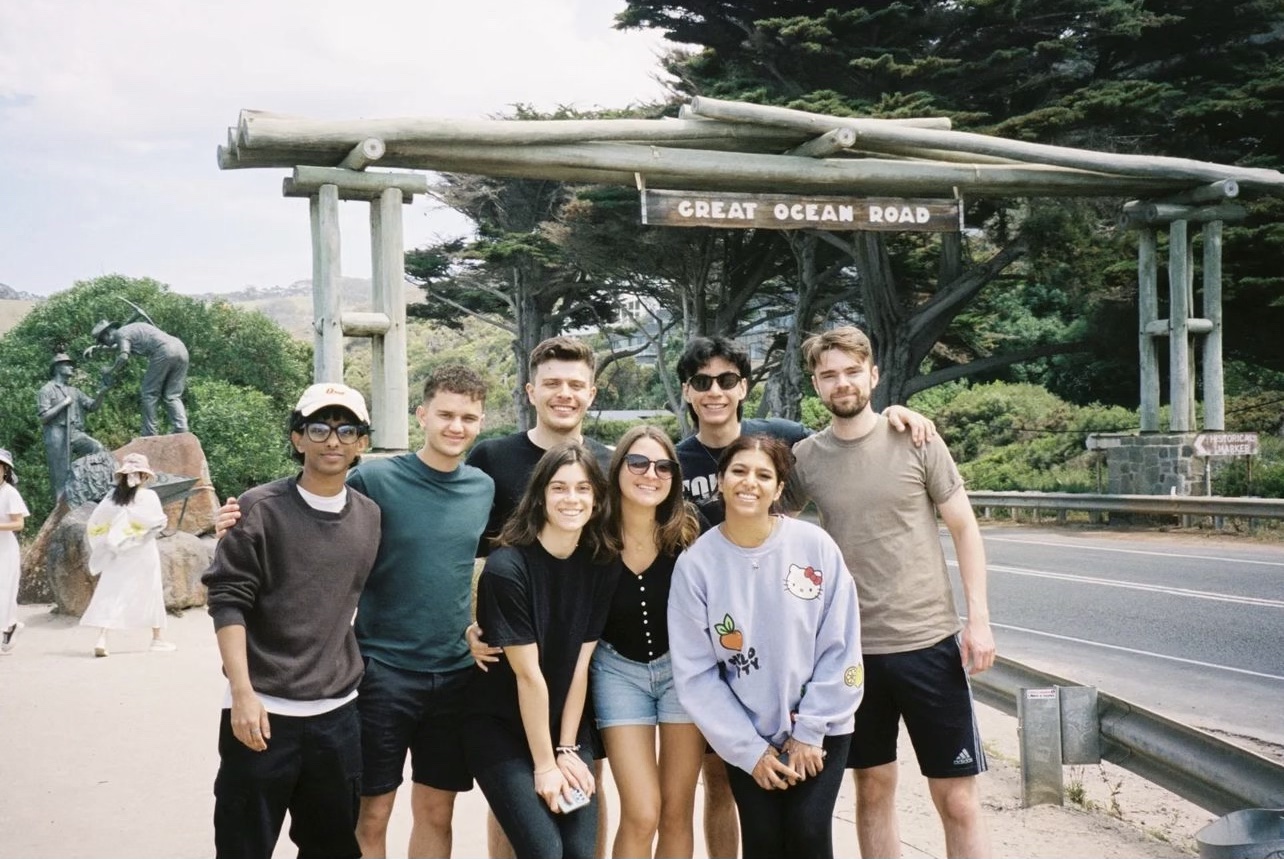


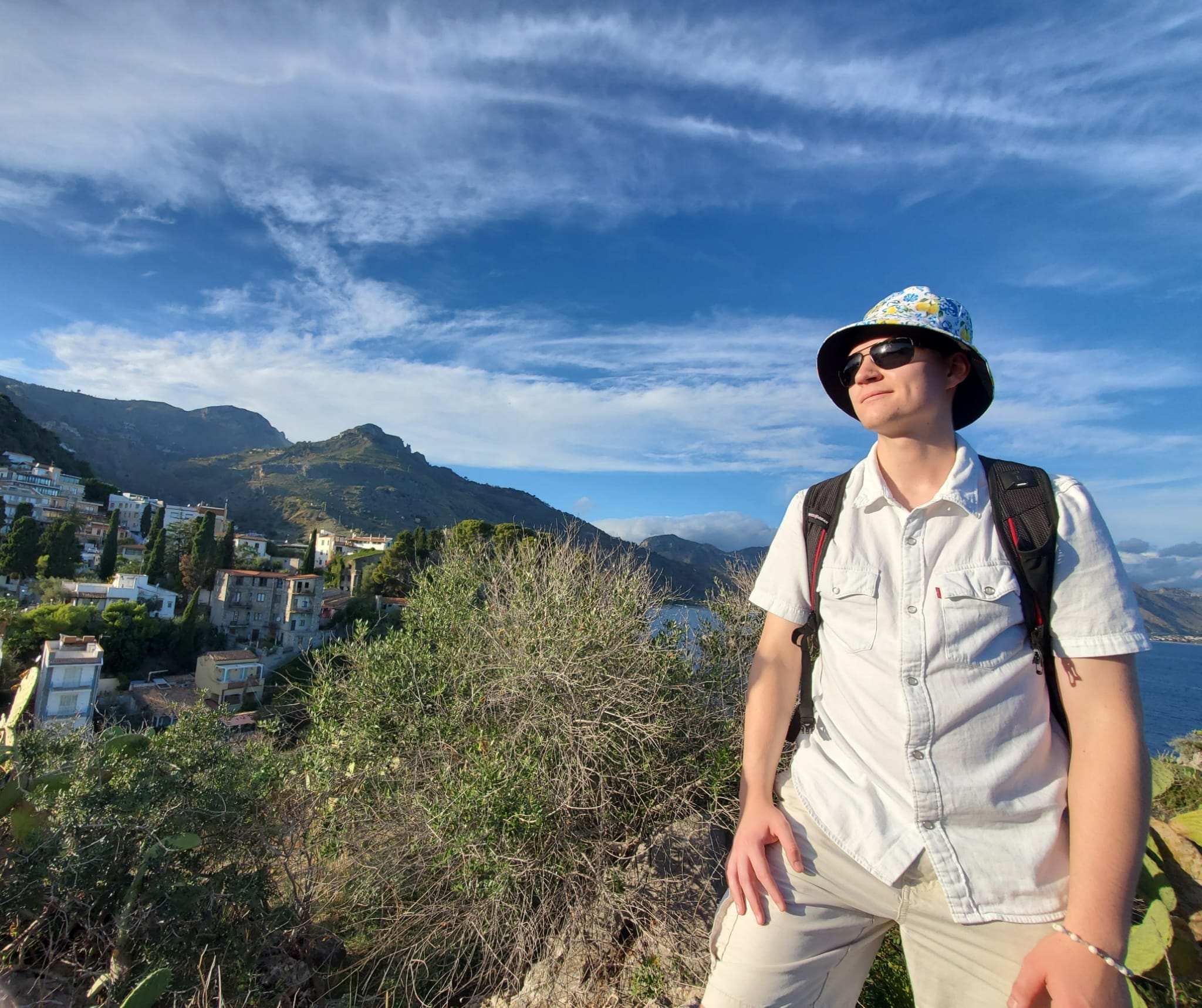

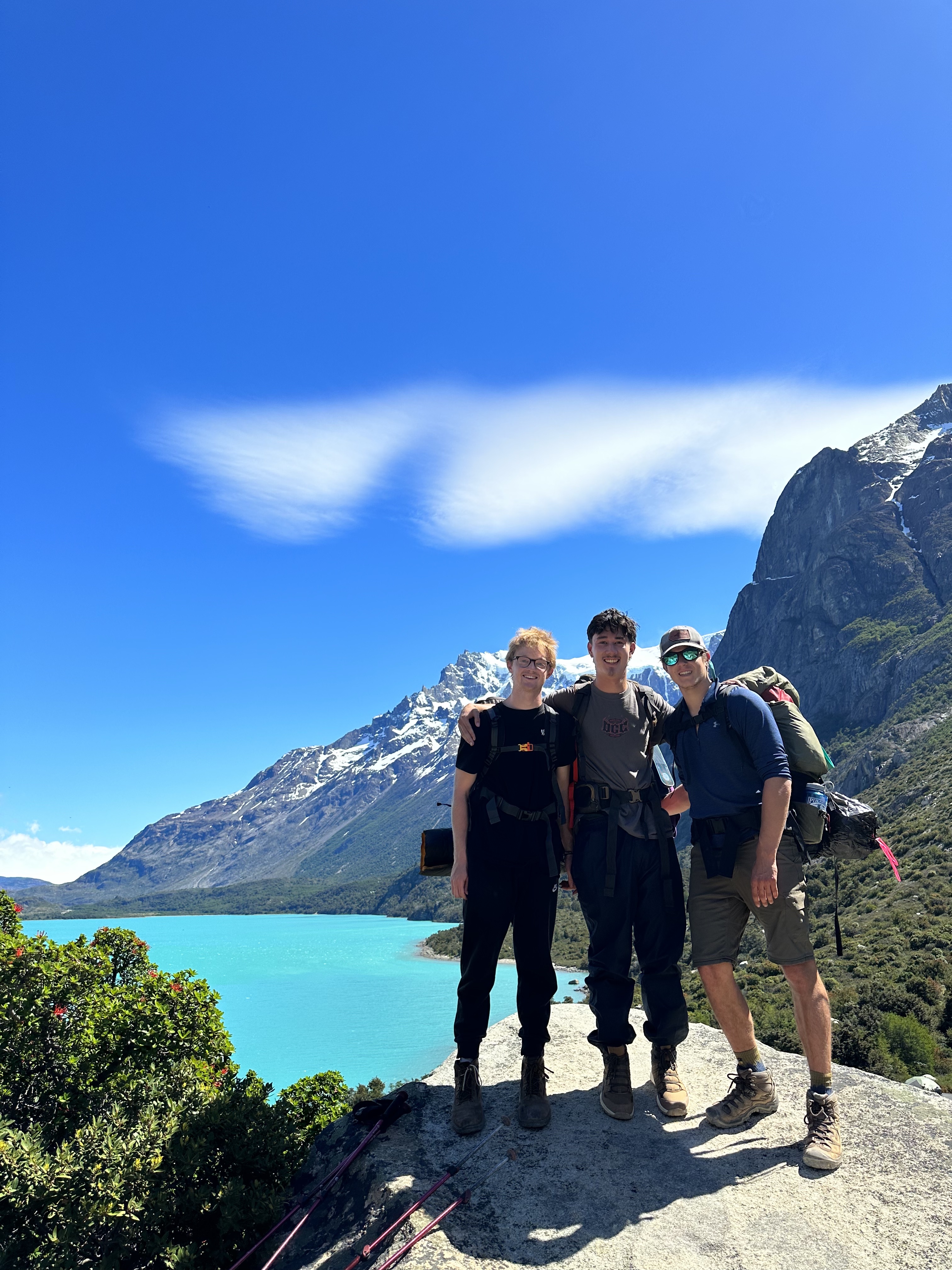
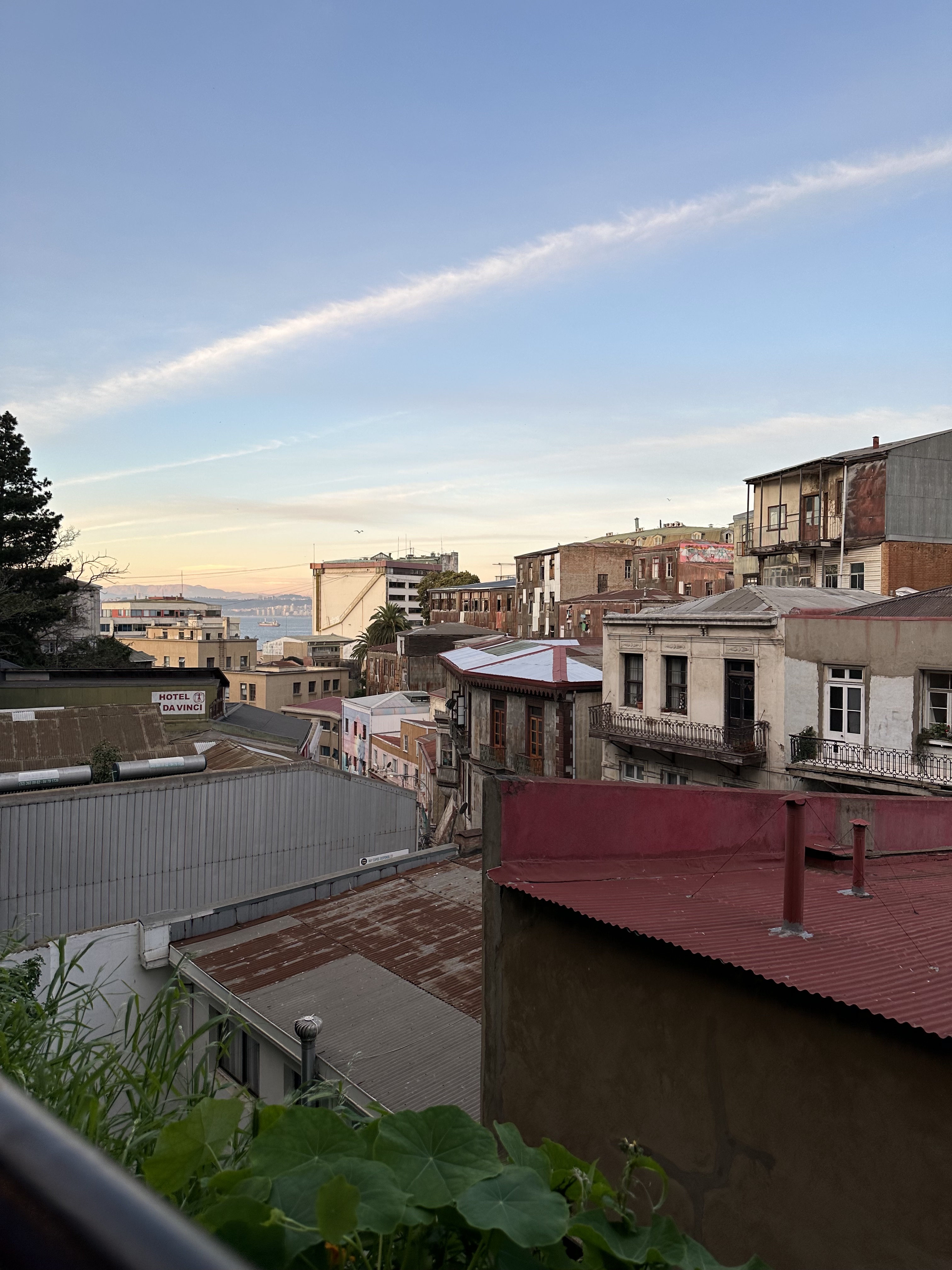
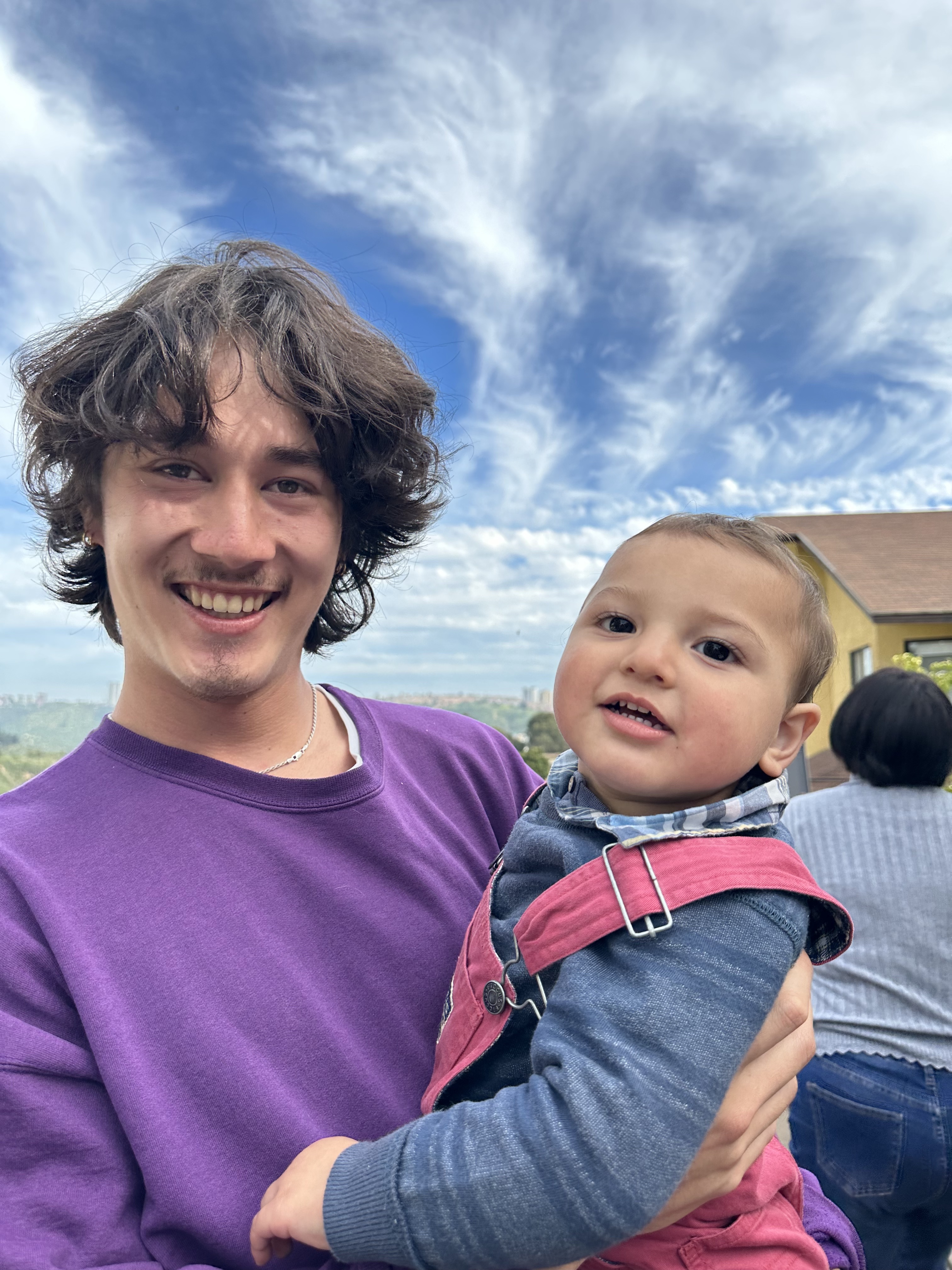
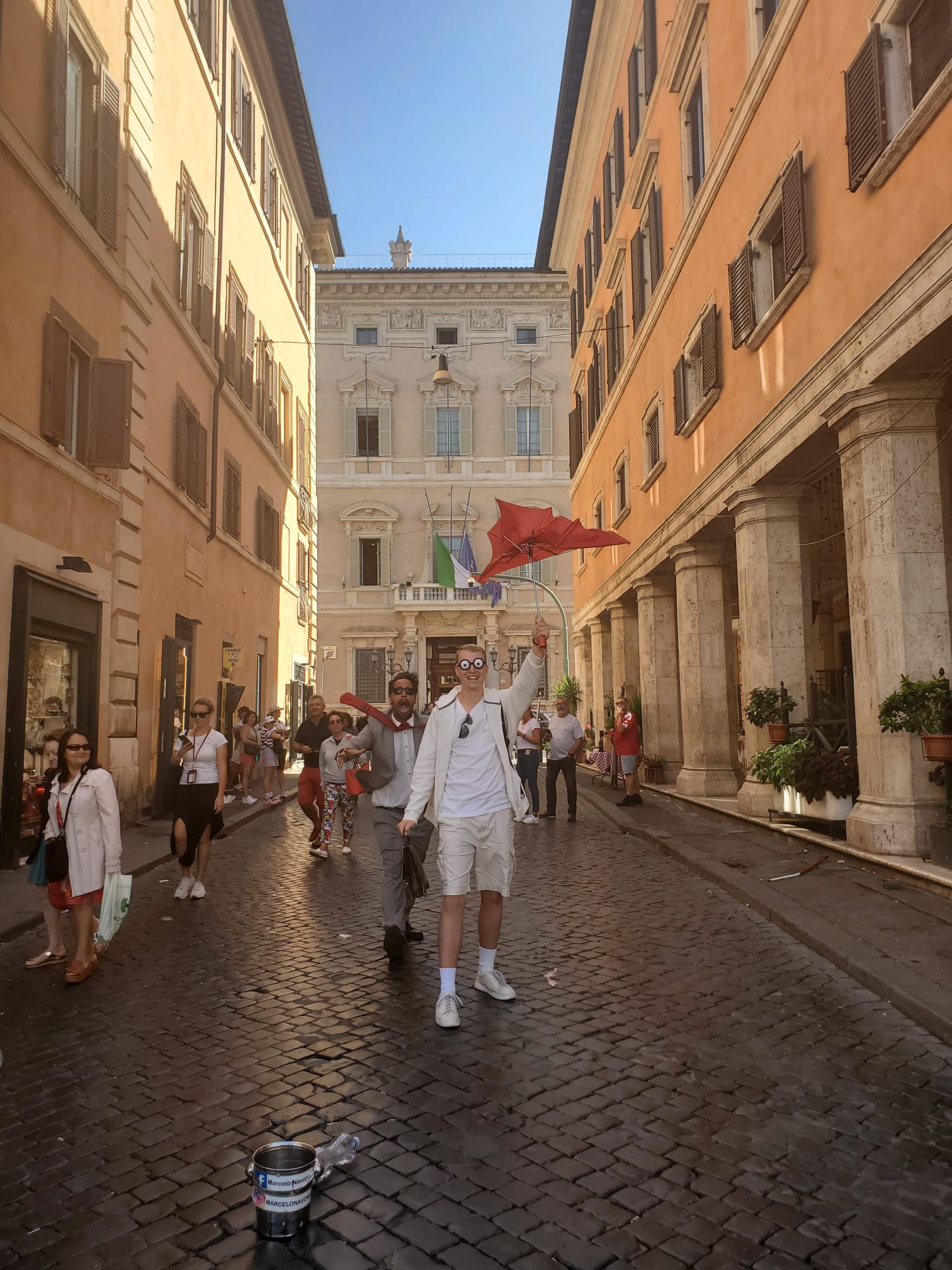


NO COMMENT